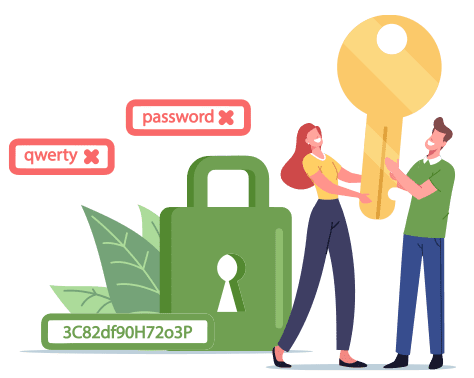A strong password is an important part of cybersecurity and protecting your privacy

- Avoid using things like your name, birthday, or your pet’s name and don’t use the same password for multiple sites
- Hackers may be able to get personal information for you and people you know by getting into your social media accounts
- By Janice Mook
Are you using your birthday, name, or your favourite idols as your password? I bet many of you do, despite being told not to during school security talks. After all, forgetting your password is such a pain in the butt.
Imagine this scenario: your social media account is hacked, but you recover your password and change it to a stronger one. Everything seems secure. Phew!
But wait: the hacker could still use the information they found. They may threaten to publish your private information, such as photos or addresses. They could also hijack your online identity and damage your reputation.
Having an easy-to-guess password for your devices also makes them prone to Internet of Things (IoT) attacks.
In other words, hackers can quickly take over all your devices connected to the internet, like headphones, webcams, and smart appliances like washing machines. Then, once these devices are hijacked, they can be used for Distributed Denial of Services (DDoS) attacks. DDoS attacks send a surge of data to web servers, bringing down websites or services.
If your passwords are weak, hackers can doxx you. Hackers might not be interested in doxxing you in particular, but when they can reveal the personal information of hundreds of thousands of people at once, yours might be included as well for others to use as they will.
This happened with Facebook just this year. A hacker published details of more than 533 million users online: full names, phone numbers, addresses, birthdates, and so on.
In this digital era, we have to know all we can about technology and cybersecurity in order to protect ourselves.
So how can you make your passwords stronger?
- Use Caesar cipher. Replace letters in your password by counting backwards or forwards in the alphabet. For example, count three letters back to replace 'E' with 'B'.
- Don’t use your name, date of birth, pet’s name, or anything that would be easily guessed.
- Use an array of characters, symbols and numbers to form an unrecognisable phrase. Avoid characters next to each other on your keyboard as they can be easily guessed.
- Double up on security by using 'biometric authentication' such as a fingerprint or facial recognition that should not be hackable.
- Never use the same password across different platforms, as hackers can easily take over all of your linked accounts.
- Change your password frequently.





